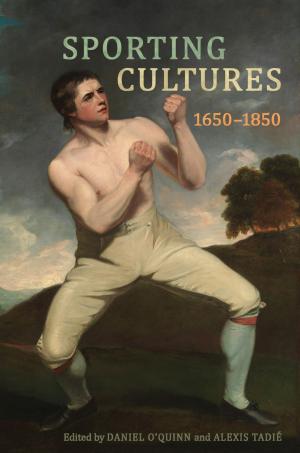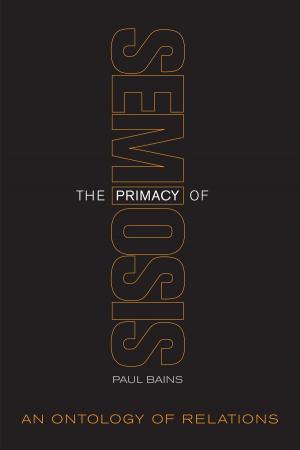Masks of the Prophet
The Theatrical World of Karl Kraus
Nonfiction, Entertainment, Theatre, Performing Arts, Social & Cultural Studies, Social Science| Author: | Karl GRIMSTAD | ISBN: | 9781487597948 |
| Publisher: | University of Toronto Press, Scholarly Publishing Division | Publication: | December 15, 1982 |
| Imprint: | Language: | English |
| Author: | Karl GRIMSTAD |
| ISBN: | 9781487597948 |
| Publisher: | University of Toronto Press, Scholarly Publishing Division |
| Publication: | December 15, 1982 |
| Imprint: | |
| Language: | English |
'When the name "Hitler" is mentioned, nothing occurs to me' – so said Karl Kraus. For this leading Viennese Jewish critic and intellectual the touchstone of art was ethics. How could he be speechless in the face of a threat to all that ethics means?
To answer this question, the author makes a detailed chronological study of Kraus's intellectual activity as reflected in his work on the theatre. The results are presented in five chapters, each dealing with a different 'mask' adopted by Kraus during the period 1892-1936. Grimstad considers not only theatre and drama criticism in Die Fackel and Kraus's dramatic writings, but also biographical data, to help uncover the rationale of his work.
That rationale is the logic of the theatrical mode in which he lived and wrote. The stage was not only his subject matter, it determined what he would see and say. Grimstad argues that when Kraus wrote, his words were the speech of an 'actor' who was often infatuated with himself and obsessed with the need to overwhelm his rival 'actors.' When Hitler's storm-troopers began their march, he could say nothing for the world in which his thought took shape had become a world of theatrics, not 'Realpolitik.'
Kraus criticized plays without reading them and performances without seeing them, obsessed with the belief that his was the voice of all that was true, good, and beautiful. Grimstad observes that he was a prophet who confused the divine inspiration with the Thespian urge, playing to an audience, using a mask for each of his roles, yet thinking he spoke to all mankind, bringing them pure ethos.
This volume will be of particular interest to those working in the fields of theatre criticism, comparative literature, German literature, and Jewish intellectual history.
'When the name "Hitler" is mentioned, nothing occurs to me' – so said Karl Kraus. For this leading Viennese Jewish critic and intellectual the touchstone of art was ethics. How could he be speechless in the face of a threat to all that ethics means?
To answer this question, the author makes a detailed chronological study of Kraus's intellectual activity as reflected in his work on the theatre. The results are presented in five chapters, each dealing with a different 'mask' adopted by Kraus during the period 1892-1936. Grimstad considers not only theatre and drama criticism in Die Fackel and Kraus's dramatic writings, but also biographical data, to help uncover the rationale of his work.
That rationale is the logic of the theatrical mode in which he lived and wrote. The stage was not only his subject matter, it determined what he would see and say. Grimstad argues that when Kraus wrote, his words were the speech of an 'actor' who was often infatuated with himself and obsessed with the need to overwhelm his rival 'actors.' When Hitler's storm-troopers began their march, he could say nothing for the world in which his thought took shape had become a world of theatrics, not 'Realpolitik.'
Kraus criticized plays without reading them and performances without seeing them, obsessed with the belief that his was the voice of all that was true, good, and beautiful. Grimstad observes that he was a prophet who confused the divine inspiration with the Thespian urge, playing to an audience, using a mask for each of his roles, yet thinking he spoke to all mankind, bringing them pure ethos.
This volume will be of particular interest to those working in the fields of theatre criticism, comparative literature, German literature, and Jewish intellectual history.















